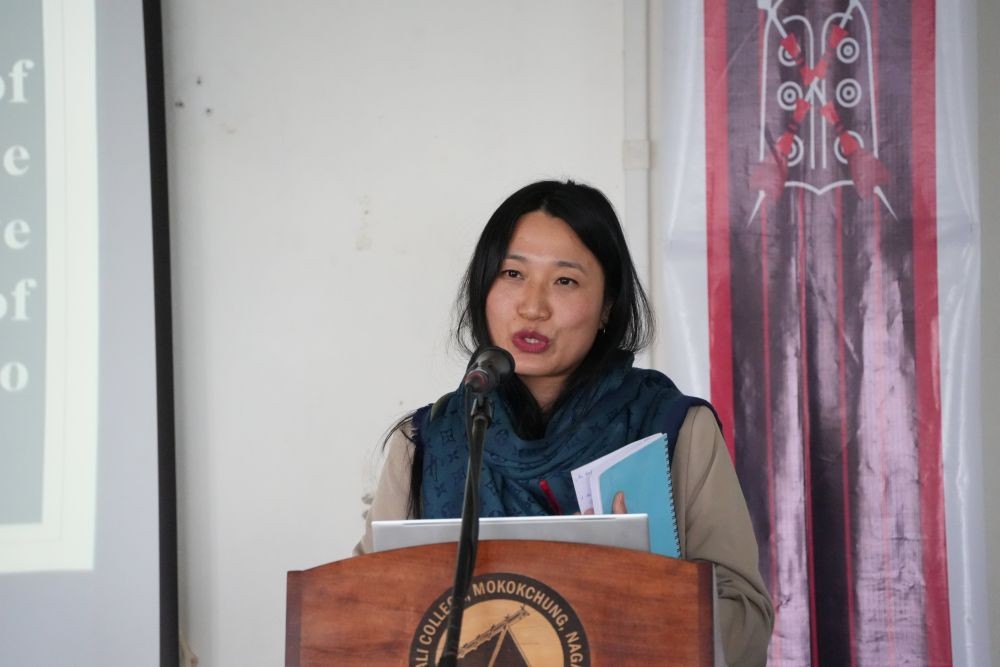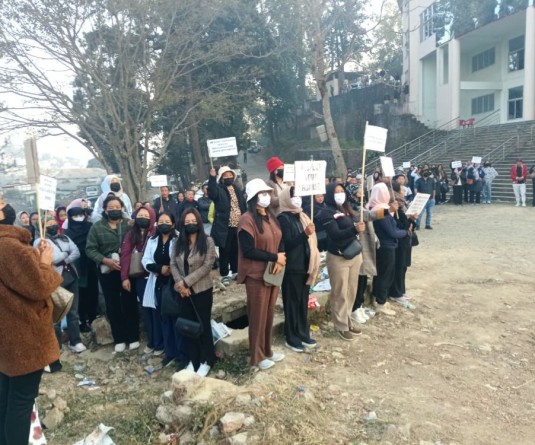Dr Imnazenla Longkumer, Assistant Professor, Department of Political Science speaking during the bi-monthly inter-departmental seminar held at FAC Mokokchung.

Bi-monthly inter-departmental seminar held at FAC Mokokchung
MOKOKCHUNG, MARCH 22 (MExN): The Bi-monthly inter-departmental seminar of Fazl Ali College was held on March 20 at the Conference Hall with Dr Imnazenla Longkumer, Assistant Professor, Department of Political Science as the resource person.
Speaking on the topic “Traditional political values in the electoral policies of Nagaland,” Dr Imnazenla highlighted how the traditional political values find its way into the electoral politics of Nagaland and traditional institutions as structures are formulated to fulfill certain functions according to its customs and norms.
Dr Imnazenla emphasized that the continued existence of traditional values in Naga society has been facilitated by the accommodative arrangements made by the Indian political system. She said that Article 371 (A) and The Nagaland Village and Area Council Acts enable the Nagas to continue their customary law and practices.
Citing data from her research, she indicated that Naga society confirms the attachment of the Nagas to their tradition, customs and usages while adding, “Even with the passage of time and the introduction of parliamentary democracy, the modern democratic values of individualism, liberty, equality and competitive politics seem to have failed to take roots.”
Dr Imnazenla further pointed out that an aspect of asserting traditional value of kinship in relation to electoral politics is found among the Nagas. She substantiated this by giving an example of how a clan in Nagaland issued a press release directing all its members to support a particular candidate and thanking another intending candidate from the same clan for withdrawing from the poll race and also mentioning that no individual member is above the clan.
Stating that there are many of such instances in the Naga society, she reflected that this indicates suppression of individual competitive spirit as well as the continued persistence of family and kinship ties getting reflected in the electoral politics of Nagaland. The traditional value of assigning greater importance to group decision over individual preferences was also a factor projected in the electoral politics of Nagaland.
The various instances of open proclamation of support to a particular candidate as a village consensus candidate by different village councils underline this fact. “The practice was so prevalent that ECI issued a warning against backing candidates, However, the pitfall of the warning was revival of oral directives and Naga society being traditional, oral directives carry as much weightage as any written ones,” Dr Imnazenla added.
She stressed that the infiltration of traditional values into electoral policies has an implication on the kind of democracy the society generates and points to pervasive nature of traditional political system. It also reaffirms that village councils in the Naga society plays an indispensable role in determining individual as well as group behavior which affects electoral politics, she added.
The seminar session was moderated by Yashikala Ao, and the recorder was Kushemyimjong Chang- both Assistant Professors in the Department of Political Science, Fazl Ali College.






